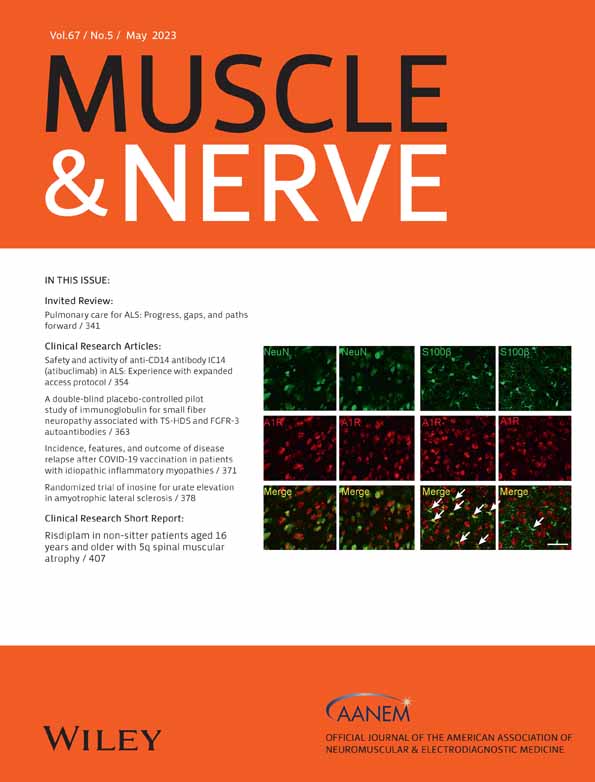A double-blind placebo-controlled pilot study of immunoglobulin for small fiber neuropathy associated with TS-HDS and FGFR-3 autoantibodies
Abstract
Introduction/Aims
Small fiber neuropathies (SFN) have been associated with two autoantibodies, trisulfated heparin disaccharide (TS-HDS) and fibroblast growth factor receptor 3 (FGFR-3), and intravenous immune globulin (IVIG) has been suggested as a potential therapy. The study objective is to determine the efficacy of IVIG on nerve density, pain and neurologic examinations in patients with SFN associated with TS-HDS and FGFR-3 autoantibodies.
Methods
This was a double-blind placebo-controlled pilot study. Subjects with SFN confirmed by history, examination, and skin biopsy with elevated autoantibodies to TS-HDS and/or FGFR-3 received IVIG (or blinded placebo) 2 grams/kg followed by 1 gram/kg every 3 wk for a total of 6 treatments. All subjects had Utah Early Neuropathy Scores (UENS), questionnaires and skin biopsies with quantitation of intra-epidermal nerve fiber density (IENFD) taken from adjacent sites at the distal leg at baseline and 6 mo later. The primary outcome was the change in IENFD over 6 mo.
Results
Twenty subjects were enrolled; 17 completed treatment (8 IVIG, 9 placebo). Three did not have final data due to coronavirus disease 2019 (COVID-19). Skin biopsy IENFD improved by 0.5 ± 0.8 fibers/mm in the placebo group and improved by 0.6 ± 0.6 fibers/mm in the IVIG-treated group (p = NS).Over 24 wk the change in pain scores (11 point pain scale) was −1.9 ± 2.6 in the placebo group, and − 1.7 ± 0.9 in the IVIG group (p = NS), the UENS improved by 3.0 ± 5.8 in the placebo group and improved by 1.8 ± 3.9 in the IVIG group (p = NS).
Discussion
This pilot study did not detect a benefit of treatment with IVIG in patients with SFN and autoantibodies to TS-HDS and FGFR-3.
Abstract
DISCLOSURE OF CONFLICTS OF INTEREST
Authors CHG and TDL have received institutional research support from Grifols to conduct this study. The authors report no other relevant conflicts of interest.
Open Research
DATA AVAILABILITY STATEMENT
The data that support the findings of this study are available from the corresponding author upon reasonable request.




